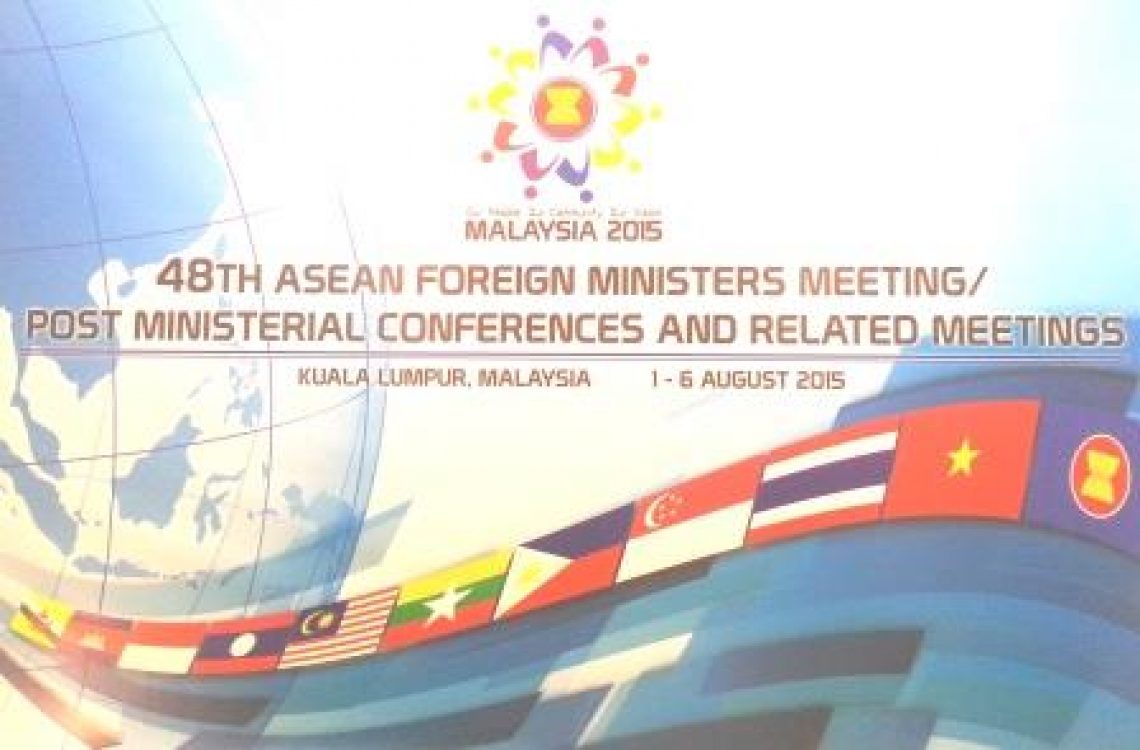1. The ASEAN Post Ministerial Conference (PMC) + 1 Sessions with ASEAN’s Dialogue Partners, namely Australia, Canada, China, the European Union, India, Japan, the Republic of Korea, New Zealand, the Russian Federation, and the United States of America were held in Kuala Lumpur, Malaysia on 5 August 2015.
2. The PMC sessions serve as a platform for ASEAN and the Dialogue Partners to review and take stock of the progress in the respective dialogue relations, including progress in implementing the respective Plans of Action (PoA). The Ministers welcomed the strong cooperation between ASEAN and its Dialogue Partners and reiterated their commitment to further strengthen the existing relationship.
3. The Ministers also took the opportunity to exchange views on regional and international issues of mutual concern. Recognising the long-standing relationship between ASEAN and its Dialogue Partners, the Ministers reaffirmed their strong commitment to work closely together to promote peace, security, stability and prosperity in the region and explore ways to further enhance and deepen cooperation in addressing various regional and global challenges of mutual concern, such as climate change, environmental sustainability, natural disasters and disaster preparedness, pandemic diseases, and transnational crimes including irregular movement of persons.
Download the full Chairman Statement here
- ABOUT ASEANThe Association of Southeast Asian Nations, or ASEAN, was established on 8 August 1967 in Bangkok, Thailand, with the signing of the ASEAN Declaration (Bangkok Declaration) by the Founding Fathers of ASEAN: Indonesia, Malaysia, Philippines, Singapore and Thailand. Brunei Darussalam joined ASEAN on 7 January 1984, followed by Viet Nam on 28 July 1995, Lao PDR and Myanmar on 23 July 1997, and Cambodia on 30 April 1999, making up what is today the ten Member States of ASEAN.Menu
- WHAT WE DO
ASEAN organs always strive to achieve ASEAN’s goals and objectives, the Secretary-General of ASEAN and the ASEAN Secretariat shall be functioned as coordinating Secretariat to help facilitate effective decision-making withing and amongst ASEAN bodies. In addition, each Member State shall appoint a Permanent Representative to liaise with Secretary-General of ASEAN and the ASEAN Secretariat
Menu - WHO WE WORK WITH
ASEAN shall develop friendly relations and mutually beneficial dialogues, cooperation and partnerships with countries and sub-regional, regional and international organisations and institutions. This includes external partners, ASEAN entities, human rights bodies, non-ASEAN Member States Ambassadors to ASEAN, ASEAN committees in third countries and international organisations, as well as international / regional organisations.
Menu - OUR COMMUNITIES
The rodmap for an ASEAN Community (2009-2015) was declared by the leaders in 2009. The ASEAN Community, anchored on three community pillars: Political-Security Community, Economic Community, Socio-Cultural Community was launched in 2015. The ASEAN 2025: Forging Ahead Together was introduced in 2015 as a Post-2015 Vision. It comprises the ASEAN Community Vision 2025, the ASEAN Political-Security Community Blueprint 2025, the ASEAN Economic Community Blueprint 2025 and the ASEAN Socio-Cultural Community Blueprint 2025
Menu - SITEMAP





